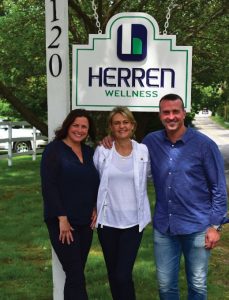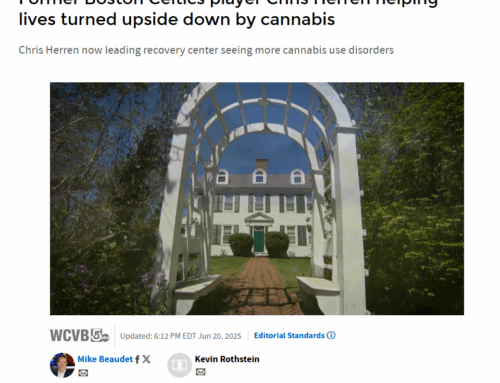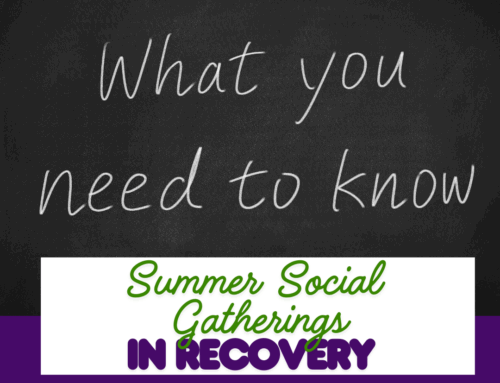“New beginnings are often disguised as painful endings.”
~ Lao Tzu
 It’s a New Year – a new decade in fact – and people are talking about new beginnings, examining habits that no longer serve them, and resolving to better themselves. January 1st is a time of fresh starts and new beginnings.
It’s a New Year – a new decade in fact – and people are talking about new beginnings, examining habits that no longer serve them, and resolving to better themselves. January 1st is a time of fresh starts and new beginnings.
Transition into Transformation
With change there is often pain, doubt, and fear. Even when life isn’t going well and there is no question we don’t want to stay where we are, change can be scary. When we close a door and leave a way of life that we don’t want anymore, but we still don’t know what our new life will look like, we are in transition. The concept to focus on, and the antidote to fear, is how transition can lead to transformation.
In early recovery, there can be a feeling of “starting over”. While in some sense that’s true, it’s important not to lose sight of the fact that everything we have experienced- even the challenges and missteps – are there to teach and inform. It is through these challenges that we learn and grow.
New Beginnings and Recovery
Early recovery is a time to examine past behaviors, get to the root cause of what led us to turn to substances, and make the changes necessary to live a life of recovery and wellness.
In that sense, it’s a lot like New Year’s – full of optimism and hope and a resolve not to stumble over the same obstacles over and over. Unlike New Year’s, however, recovery is a way of life. It’s not a ‘reset’ button; it’s a daily process of learning, growing, changing our perspective, and learning from past and present mistakes. It’s a transformation that stays with us for life. The beauty of recovery lies within this change, and while it can be intimidating, change brings hope and healing.
Resisting Change
Humans, by nature, often resist change even when we know it is needed. We are comfortable in the familiar and stepping into the unknown is usually challenging. Resisting change, however, makes recovery more difficult. It is in the resistance that we struggle and suffer. Embracing and accepting change – even when it’s scary – is the pathway to healing. This is emotional, as well as physical, sobriety. It’s more than ceasing a substance, it’s embracing a new way of living. It requires us to step outside our comfort zones and into the unknown.
How to Embrace Change
By living in the present moment and staying mindful of the benefits of change, we learn and grow. By discarding patterns, routines, and habits that no longer serve us, we leave room for recovery and wellness.
Mindfulness vs. Mindlessness: Every time we consciously override habituated responses, we strengthen our capacity to make different choices in the future. In order to do this, we must stay aware – mindful – of all aspects of our recovery, including the setbacks and challenges. Living mindfully decreases the chances that we will lose ourselves to old, automatic responses and behaviors.
Plan for Setbacks: By definition, change requires setbacks. Setbacks show us what we’re made of, teach us to make different decisions and allow us to learn from our experiences. It’s not just the setback that can cause pain, but more importantly, it’s our response to it. Each time we face a challenge, if we stay mindful of the outcome and maintain a willingness to learn, we are breaking habits and moving toward wellness and recovery. If we plan for what we will do if a setback happens, stay close to our recovery community, and are open to learning from people who have walked this path before us, we strengthen our recovery.
Practice Gratitude: Gratitude is like the fuel for motivation to change. Practicing gratitude is an action, not just a state of mind. Keep a gratitude journal and write in it daily. Stay focused on what is being added to life, not what is being taken away. Motivation is usually strongest when we first decide to make a change. That is when the need for change is fresh in our mind and the pain and problems are most pressing. But as time goes on and memories of pain fade, so can motivation and determination to stay the course. Actively practicing gratitude helps you stay focused on the reasons for making changes in your life.
 About Herren Wellness
About Herren Wellness
We work with guests to rediscover their purpose, passions, and strengths. We build self-care and mindfulness skills to help guests become aware, live fully present in their lives, and treat themselves with loving-kindness. We also provide the tools needed to establish healthy habits and patterns like fitness, healthy sleep hygiene, and proper nutrition. We help guests uncover and experience the things that bring joy, meaning, and purpose to their lives.
If you, or a loved one, are looking for help, please call us at (844) 443-7736, email us at info@herrenwellness.com, or fill out a contact form. You are not alone.





